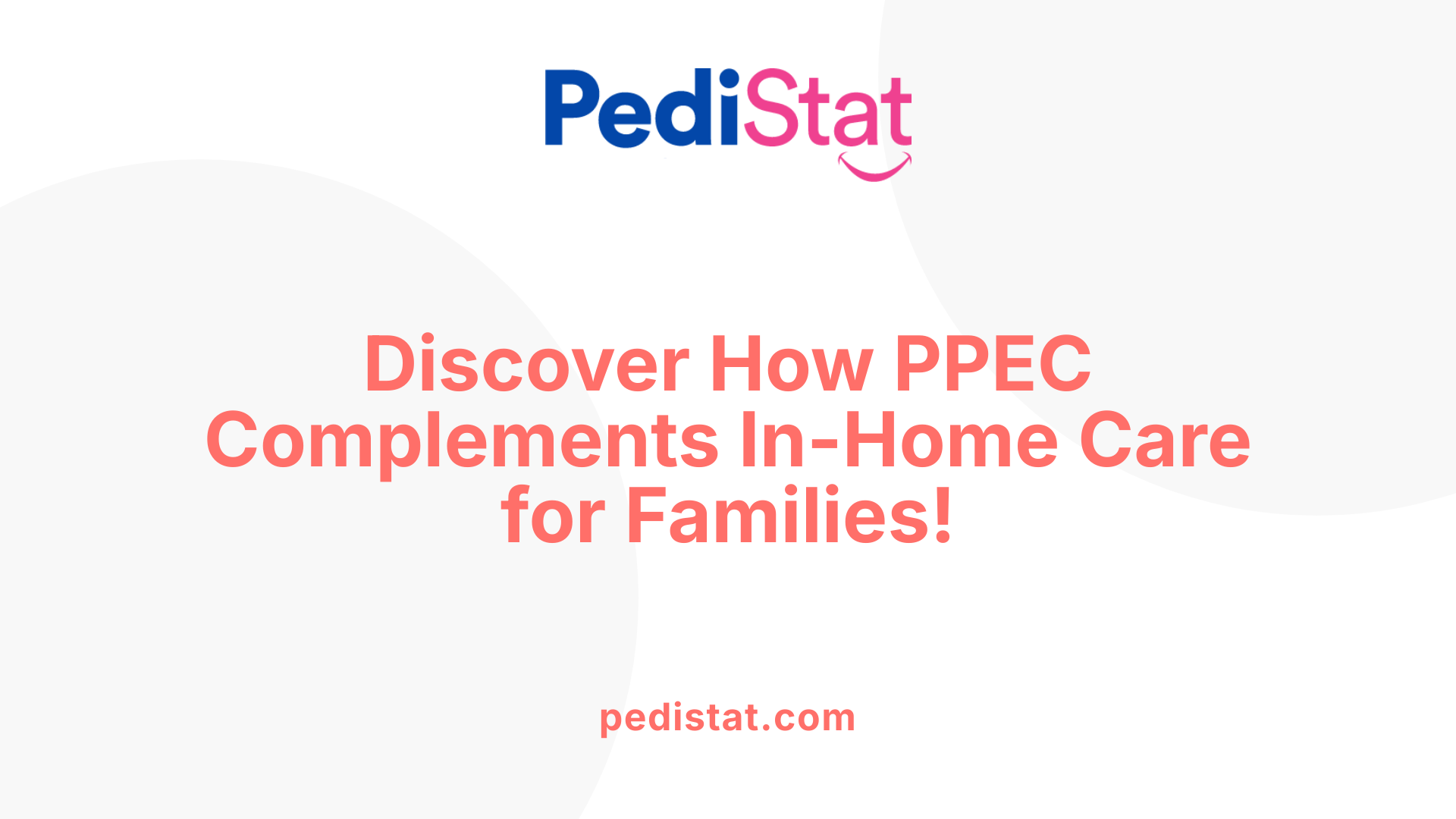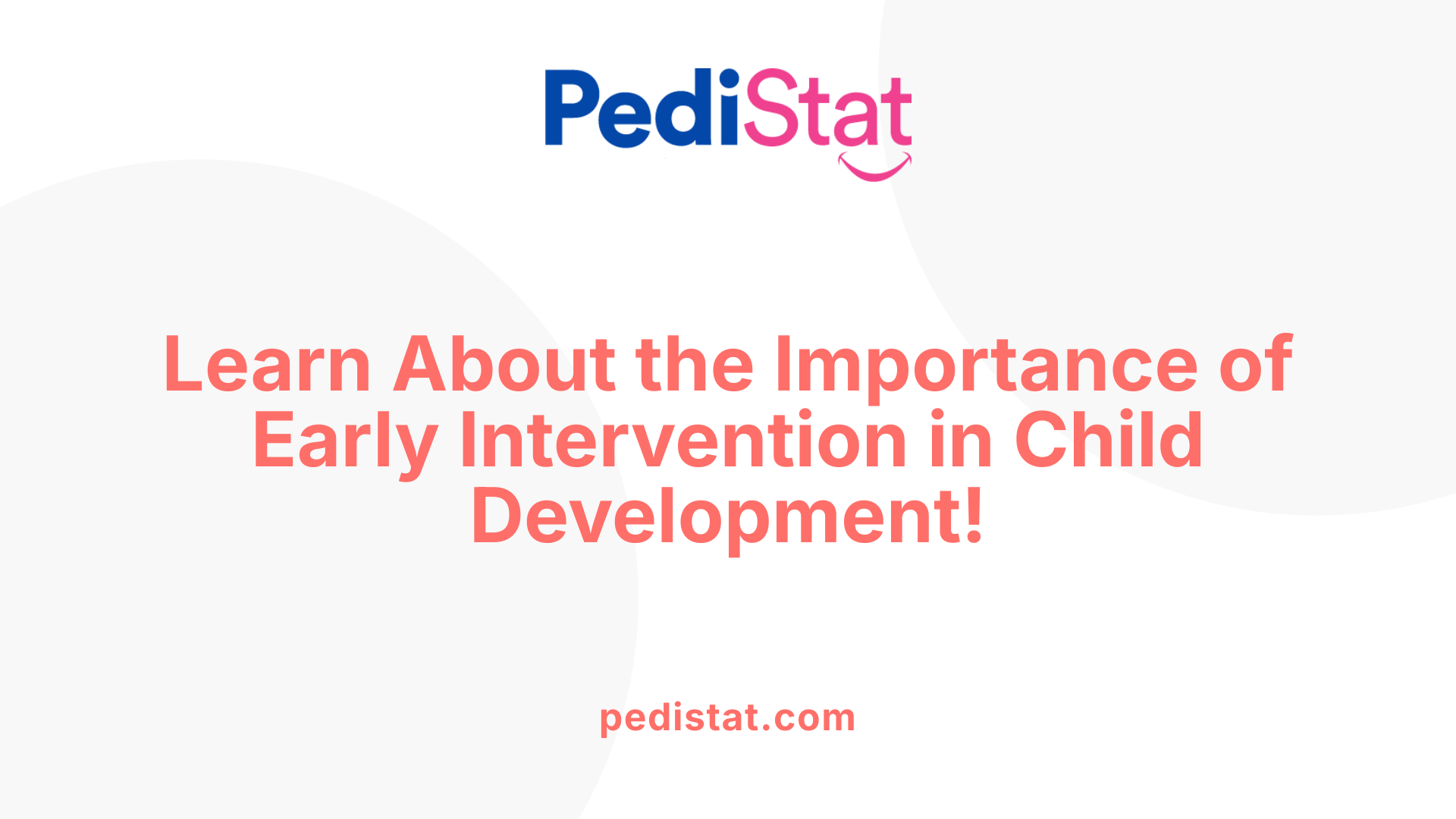The Role of PPEC in Early Childhood Development

Understanding PPEC
Prescribed Pediatric Extended Care (PPEC) centers play a transformative role in the lives of children with complex medical needs. By offering integrated care that combines medical support with therapeutic and educational activities, PPEC centers help children reach critical developmental milestones. The purpose of this article is to delve deeply into the comprehensive services provided by PPEC and their impact on early childhood development, while also addressing their integration with in-home care and the qualifications required for those providing these services.
Comprehensive Services Offered by PPEC

What is a Prescribed Pediatric Extended Care (PPEC) daycare?
A Prescribed Pediatric Extended Care (PPEC) daycare is a state-licensed facility designed to provide specialized care for children with complex medical needs. These centers offer comprehensive medical support, including skilled nursing, medication management, and care for medical equipment. In addition to that, they incorporate integrated therapies such as speech, occupational, and physical therapy.
The importance of social interaction in these settings cannot be overstated. PPEC allows children to develop essential emotional and social skills within a supportive and nurturing environment. This service alleviates the burden on parents by providing professional care during the day, enabling them to balance work and caregiving responsibilities effectively.
Overview of services
PPEC centers provide a range of critical services:
- Medical Care: Continuous assessment and treatment from registered nurses, monitoring health status and managing medications.
- Therapeutic Services: Access to tailored programs that include physical therapy, occupational therapy, and speech therapy to meet developmental milestones.
- Educational Activities: Customized educational plans to stimulate cognitive growth, helping children prepare for future academic success.
- Socialization Opportunities: Structured play and group activities allow children to interact with their peers and develop communication skills in safe settings.
Impact on early childhood growth
The impact of PPEC on early childhood development is significant. By offering a combination of medical and developmental support, PPEC plays a vital role in fostering independence and enhancing the quality of life for children. Access to specialized care helps manage minor illnesses, reducing the need for hospitalization while ensuring timely interventions for any emerging health issues.
Through these integrated services, children at PPEC not only receive the medical attention they require but also engage in enriching activities that promote their overall growth. This holistic approach is critical for supporting children with special healthcare needs, helping them reach their full potential.
PPEC vs. In-Home Care: A Complementary Approach

How do PPEC services integrate with in-home care for children with special healthcare needs?
PPEC (Prescribed Pediatric Extended Care) services are designed to seamlessly integrate with in-home care for children requiring special healthcare attention. This approach provides critical medical support and therapeutic intervention in a nurturing environment, which is especially advantageous for medically fragile children requiring consistent care, such as those dependent on ventilators or feeding tubes.
Parents can confidently manage their responsibilities, knowing their child is receiving personalized care from trained professionals. Each PPEC center crafts individualized care plans that align with ongoing home healthcare strategies, ensuring continuity in treatment and development.
Benefits for the family and child
By allowing children to attend PPEC centers during the day, families gain respite from the intense demands of caregiving. This time is crucial for parents to recharge, helping to alleviate caregiver burnout. In addition, while at PPEC, children benefit from daily therapies, including occupational, physical, and speech therapy, which are tailored to support their developmental milestones.
Developmental opportunities through PPEC
PPEC centers create a rich environment for learning and socialization. Children participate in structured activities that promote emotional, cognitive, and physical growth, significantly aiding in their developmental progress. By engaging in play and learning alongside peers, children enhance their communication skills, build relationships, and cultivate a sense of belonging, which is vital for healthy emotional development.
With the support of expertly trained staff and tailored educational resources, PPEC enhances both the healthcare and developmental experiences of children with special healthcare needs, making it a vital partner in their growth journey.
The Critical Role of Early Intervention in PPEC

Importance of early intervention
Prescribed Pediatric Extended Care (PPEC) plays a pivotal role in early intervention for children with special healthcare needs. By providing a structured environment focused on healthcare and development, PPEC supports children from infancy through age 21, allowing them to receive necessary medical care while fostering their social, cognitive, and emotional growth. Early intervention is crucial as it helps mitigate potential delays, ensuring children are equipped to thrive when embarking on future educational journeys.
Impact on developmental milestones
PPEC centers are instrumental in helping children achieve key developmental milestones. With tailored therapy such as occupational, physical, and speech therapy, children are offered multi-faceted support that caters to their specific needs. Daily educational activities are incorporated into routines to stimulate cognitive growth, while structured play promotes socialization, helping children learn crucial communication skills and emotional resilience—all essential components in reaching their full potential.
Special needs support provided by PPEC
With a focus on individualized care, PPEC centers create plans that address each child's unique needs. Staffed by licensed professionals, including nurses and therapists, PPEC provides a safety net for families grappling with the complexities of caring for a medically fragile child. These centers serve as not only a vital resource for health management but also as a nurturing environment where social interaction fosters emotional well-being. Consequently, PPEC enables children to integrate more fully into the community, supporting their overall development and independence.
What is the role of early care providers in the early childhood special education system?
Early care providers play a crucial role in the early childhood special education system by supporting families of children with disabilities aged 0–5. They serve as critical advocates and information sources, guiding families from the referral process through to the transition to kindergarten. These providers often face challenges in being included in the planning and delivery of services, particularly during Individual Family Service Program (IFSP) and Individual Education Program (IEP) meetings. They also promote the integration of therapy into children's daily routines, ensuring that services are seamlessly incorporated into everyday activities. Overall, early care providers enhance communication among families, special education, and service providers, facilitating better outcomes for children with disabilities.
Provider Qualifications and Regulatory Framework

What qualifications do providers need to work in PPEC services?
To work in PPEC services, providers must adhere to specific regulatory standards established by state law, crucial for delivering safe and effective care. Each PPEC in Florida requires licensure under Chapter 400 Part VI of the Florida Statutes and must also comply with the Florida Administrative Code, specifically Chapter 59A-13.
Staff at PPEC centers typically comprises a diverse range of professionals including:
- Physicians: Overseeing medical care and treatment plans.
- Registered Nurses (RNs): Delivering direct nursing care based on physician orders and monitoring health.
- Licensed Practical Nurses (LPNs): Assisting RNs and providing basic nursing care.
- Certified Nurse Assistants (CNAs): Supporting daily personal care needs of the children.
- Therapists: Including physical, occupational, and speech therapists who facilitate developmental therapies.
To ensure compliance with health regulations, PPEC providers must also pass Life Safety Code and health inspections, demonstrating their proficiency in health and safety protocols. This regulatory environment is designed to safeguard the health of children in care. Moreover, eligibility for services requires that children be Medicaid recipients under 21 with medically complex conditions necessitating skilled nursing care, supported by physician referrals detailing their medical needs.
PPEC's Impact on Social and Emotional Development

Socialization Opportunities
Prescribed Pediatric Extended Care (PPEC) provides crucial socialization opportunities for children with complex medical needs. Within a safe and structured environment, children engage with peers through various group activities, which promotes communication skills and helps them develop a sense of belonging. These interactions facilitate connections vital for emotional health and create relationships that lay the foundation for future social endeavors.
Emotional Growth in PPEC Settings
The PPEC setting is designed to support emotional growth through structured play and educational activities tailored to each child's developmental phase. These experiences not only stimulate cognitive development but also address emotional needs by allowing children to express themselves freely. This holistic approach nurtures emotional resilience, helping children cope with the pressures of their medical conditions and fostering independence.
Children in PPEC settings benefit from coordinated care plans that balance medical, developmental, and emotional requirements. Moreover, trained staff provide early intervention strategies that address any potential emotional or developmental delays, contributing significantly to the child's overall well-being.
In summary, PPEC centers play a vital role in enhancing social and emotional development, ensuring that children not only thrive medically but also grow emotionally and socially in a supportive community.
The Future of PPEC in Child Development
Prescribed Pediatric Extended Care centers are invaluable in enhancing the development of children with complex medical needs. By offering integrated support in a nurturing environment, PPECs help children achieve significant developmental milestones and provide immense relief and support to families. As awareness continues to grow about the vital role of PPECs, the focus on integrating these services with existing in-home care systems and ensuring access through regulatory support will be critical for optimizing outcomes for these children.
References
- The Role of PPEC in Enhancing Pediatric In-Home Care: A Parent's ...
- The Role of PPEC in Managing Failure to Thrive - Spark Pediatrics
- The Benefits of Early Intervention Through PPEC Services
- Prescribed Pediatric Extended Care (PPEC) | Florida Agency for ...
- 5 Incredible Benefits of a PPEC
- [PDF] Assessing the Knowledge of Pediatric Healthcare Providers as it ...
- PPEC Medical Childcare - Easterseals Redwood













